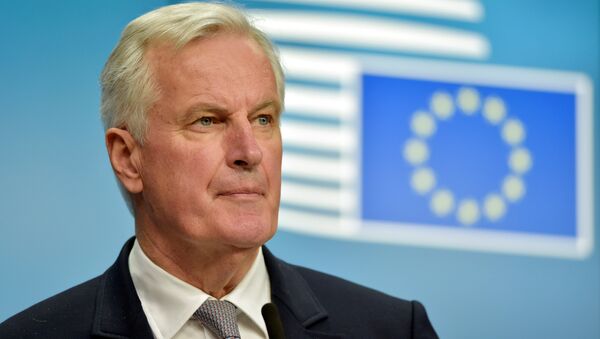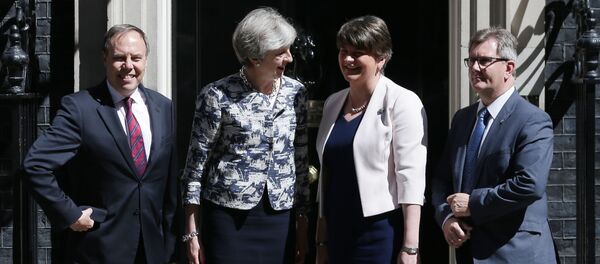"We will need to have the final version of the withdrawal agreement ready by October 2018, in less than one year," Barnier told journalists at a news conference following talks between Theresa May and Jean-Claude Juncker.
He also marked a breakthrough achieved at a final round of negotiations within the first phase of Brexit talks between Britain and the EU, which is essential for moving to the next stage, though "there is still work to be done."
READ MORE: Brexit Deal Drama: 'DUP Enjoy Holding Knife to May's Throat, Fear Corbyn Gov't'
Barnier characterized the agreement between Britain, Ireland and the EU reached earlier today as "precise and detailed" and if it is adopted by EU leaders at a summit scheduled for the next week it could become "the basis for the withdrawal agreement."
First #Brexit hurdles taken…more to come https://t.co/D6DlQkrj5T
— Michel Barnier (@MichelBarnier) December 8, 2017
The future EU-UK trade deal after the United Kingdom exits from the bloc is likely to be of the same model as the European Union’s trade deal with Canada, according to Barnier. He elaborated that the model is the only one which would fit the United Kingdom’s requirements for a future bilateral relations, as it does not want to accept freedom of movement or the membership in the single market or the customs union.
Britain is set to leave the Union by March 2019 after the UK's historic vote to withdraw from the EU occurred more than a year ago. Since June 2017, Britain and the European Union have been negotiating new arrangements for the UK outside the EU. Key issues of the talks are rights of the EU and UK citizens after Brexit, the so-called "divorce bill" and the Northern Ireland border. Negotiators have to define as well post-Brexit trade relations between the UK and the European Union and terms of cooperation in all spheres.



